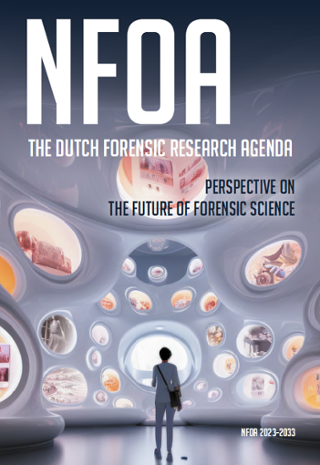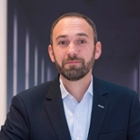AUAS contributes to Dutch Forensic Research Agenda
‘This is the starting point for the future of forensic research’
12 Dec 2023 09:08 | Centre for Applied Research TechnologyFrom the police force and the Public Prosecution Service to the higher education sector and the Netherlands Forensic Institute (NFI), forensics world actors have all joined forces in recent years to develop the Dutch Forensic Research Agenda. This document details the five areas on which they believe forensic research needs to focus over the next decade. According to Bas Kokshoorn, professor of Forensic Trace Dynamics at Amsterdam University of Applied Sciences (AUAS), this project is unique in the Netherlands – and beyond.

The Dutch Forensic Research Agenda is an initiative of the Co van Ledden Hulsebosch Center and the NFI. In addition to his professorship at AUAS, Kokshoorn is also affiliated with these two organisations and was closely involved in work on drafting the document.
‘We're living in a fast-changing society in which technological advances are equally fast-paced, so it's essential to keep up with that and invest in research’, says Kokshoorn. The Dutch Forensic Research Agenda now lays down in concrete terms the five areas on which research should focus, which are: finding, securing and tracing evidence; forensic reconstruction; application of forensic methods outside the laboratory; artificial intelligence and data science; and chain-wide collaboration.
Connecting science and practice
For research scientists, the forensics field and industry to join forces and plot a course for forensic investigation in this way is unprecedented in the Netherlands, says Kokshoorn. 'But it has never happened outside the Netherlands before, either. Ideally, it will provide an impetus to move forward on pressing issues both domestically and worldwide.’
As a professor at AUAS, Kokshoorn believes strongly in the added value of collaboration between all actors in the forensic domain. ‘AUAS does applied research and works to bring technological developments into practice. That aligns with the aims of the Dutch Forensic Research Agenda to connect scientific research and the professional field .’
Survey and workshops
The research agenda is based on a survey and a series of in-depth workshops facilitated by the Lorentz Center. Several researchers from AUAS were also involved in leading the workshops, including Kokshoorn as well as Professor of Forensic Research Christianne de Poot and researchers Annemieke van Dam, Dieter Pater, Rosanne de Roo and Katharina Draxel.
‘The workshops brought together a variety of forensic world actors’, Kokshoorn continues. ‘During the discussions, it became clear that everyone, across the professional and scientific field, shares the same concerns. This really underlines that we all want to achieve the same things. ‘
Dutch Forensic Research Agenda as a guide
Following the workshops, a writing team that included Kokshoorn and De Poot developed the results into what is now the Dutch Forensic Research Agenda. ‘It sets out where we are now, where we want to go and where we need to go’, Kokshoorn explains. ‘These are the issues we want to work on together in the coming years. This is the starting point for the future of forensic research. From defining the focus of research groups to options for funding, the Dutch Forensic Research Agenda will guide all of the forensic research initiatives we pursue in the years ahead.’
